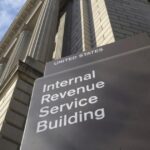The country is anticipating another round of significant rulings from the Supreme Court, particularly on climate cases.
Two terms to be aware of are the “Chevron doctrine” and the “good neighbor plan,” as both may be invalidated by the Supreme Court in the near future.
If this occurs, it could greatly restrict the regulations that federal agencies in Washington are able to create, particularly those related to climate change.
The Chevron doctrine grants agencies the authority to interpret laws and establish regulations, such as the “good neighbor plan,” which aims to regulate pollution in 23 states by the Environmental Protection Agency.
States like Ohio have contested this norm, arguing that the regulations place excessive strain on electrical grids and that the EPA lacks the necessary jurisdiction.
“I believe EPA’s regulations will be open to reassessment if Chevron is curtailed or overturned,” remarked Jonathan Siegel, a law professor at George Washington University.
Siegel suggests that if Chevron is invalidated, it could significantly impact the EPA’s capabilities, though he advises that it may take time to fully comprehend the repercussions.
Alison LaCroix, a law professor at the University of Chicago, presents a contrasting viewpoint.
She envisions that the ruling could substantially alter the federal government’s ability to enact any regulations, including those pertaining to climate change.
“This has the potential to dismantle the federal administrative structure,” expressed LaCroix.
If the imminent Supreme Court decisions invalidate or make it simpler to challenge regulations linked to climate change, it could impede President Biden’s ability to implement new regulations in a hypothetical second term. Conversely, the forthcoming judgment could facilitate former President Trump in rescinding actions if he is re-elected.
Former President Trump rescinded approximately 100 environmental regulations throughout his tenure.





